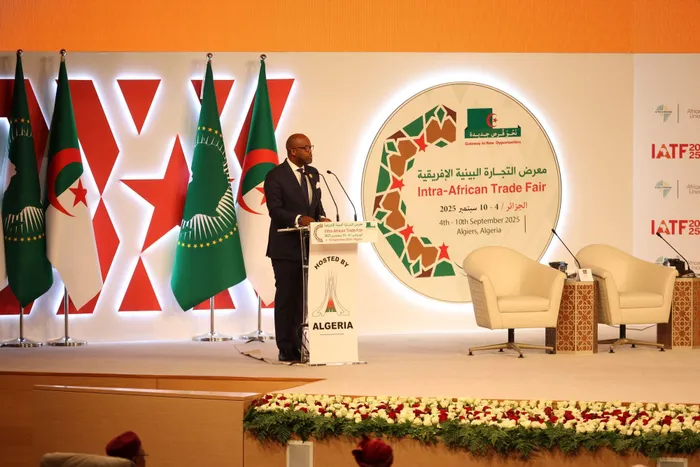Fourth Intra-African Trade Fair (IATF2025) opens in Algiers

The fair is described as a significant symbol of Africa’s economic awakening.
Image: Supplied
The fourth Intra-African Trade Fair (IATF2025) opened in Algiers, Algeria this week, with calls for greater economic integration and a renewed commitment to the African Continental Free Trade Area (AfCFTA) – this is particularly relevant to the auto industry, with the Africa Automotive Show due to get underway tomorrow.
Addressing the opening ceremony, the Chairman of the IATF2025 Advisory Council and former Nigerian President, Chief Olusegun Obasanjo, described the fair as a significant symbol of Africa’s economic awakening. He noted that the event has become a major platform for connecting buyers, sellers, investors, and governments from across the continent.
Obasanjo reported that 48 African countries are participating in exhibitions, marking the largest country participation since the inaugural fair in 2018.
He highlighted the fair’s record of facilitating major deals, stating that the previous three editions had generated combined trade and investment commitments exceeding R2.2-trillion. He pointed to the Julius Nyerere Hydropower Project in Tanzania, a R54-billion deal signed at the 2018 fair, as an example of the transformational deals the event enables.
In her address, African Union Commission Deputy Chairperson, Ambassador Selma Malika Haddadi, echoed this sentiment, noting that each edition of the fair has brought the continent closer to the goals of the African Union’s Agenda 2063. The Algiers fair is convened under the theme “Boosting Intra-African Trade for a Sustainable Future: Innovation, Value Addition, and Green Industrialization.”
Ambassador Haddadi stated that boosting intra-African trade is both an economic and political imperative. While Africa contributes only 2.9% to global trade, intra-African trade has been growing, expanding by 27% between 2017 and 2023 to approach R3.7 trillion.
She emphasised that trade between African countries is primarily driven by manufactured goods, which account for 45% of intra-African commerce, compared to just 20% of the continent’s exports outside Africa.
In terms of the auto industry, Stellantis South African and sub-Saharan African head, Mike Whitfield – who will one of the speakers at the automotive conference – announced at a recent Stellantis event in Johannesburg proper implementation of the AfCFTA combined with the growing number of automotive assembly plants in Africa could see countries – including South Africa – importing vehicles from within Africa in the near future.
However, she was frank about the challenges, noting that intra-African trade still represents a mere 15% of total African trade. She identified systemic barriers, including costly trade restrictions, fragmented infrastructure, and financial systems that do not connect, which make trading with a neighbour more difficult than trading abroad.
Wamkele Mene, Secretary-General of the AfCFTA Secretariat, added: “The AfCFTA is already delivering. Intra-African trade rebounded strongly in 2024, recording a 12.4% increase from 2023, according to
Afreximbank’s African Trade Report 2025. This recovery underscores growing confidence in Africa’s integration model under the AfCFTA.
“Beyond the headline figures, the data shows a gradual shift in the continent’s trade composition. While primary commodities still dominate, there is a clear growth in machinery, motor vehicles, food products, chemicals and electronics. This shift signals our continent’s transition from raw commodity dependency toward industrial diversification, a shift that will only be sustained by stronger logistics and manufacturing value chains.
Indeed, through the adoption of the eight protocols, as well as operating instruments such as rules of origin, the e-Certificate of Origin, the Pan-African Payment and Settlement System, Private Sector Engagement
Strategy and the AfCFTA Adjustment Fund, we are laying the foundations of a single continental market.
“The Digital Trade Protocol in particular opens new avenues for e-commerce, fintech, and ICT-enabled services. If harnessed fully, it can generate millions of jobs for Africa’s young people and ensure the continent is not left behind in the global digital economy.”
The leaders called for a conversion of political promises into concrete action, urging delegates to commit to new partnerships, remove trade barriers, and simplify processes. Ambassador Haddadi challenged attendees to place their trust in an African product they had not considered before, stating, “We cannot ask the world to believe in ‘Made in Africa’ if we do not believe in it ourselves.”
Related Topics: